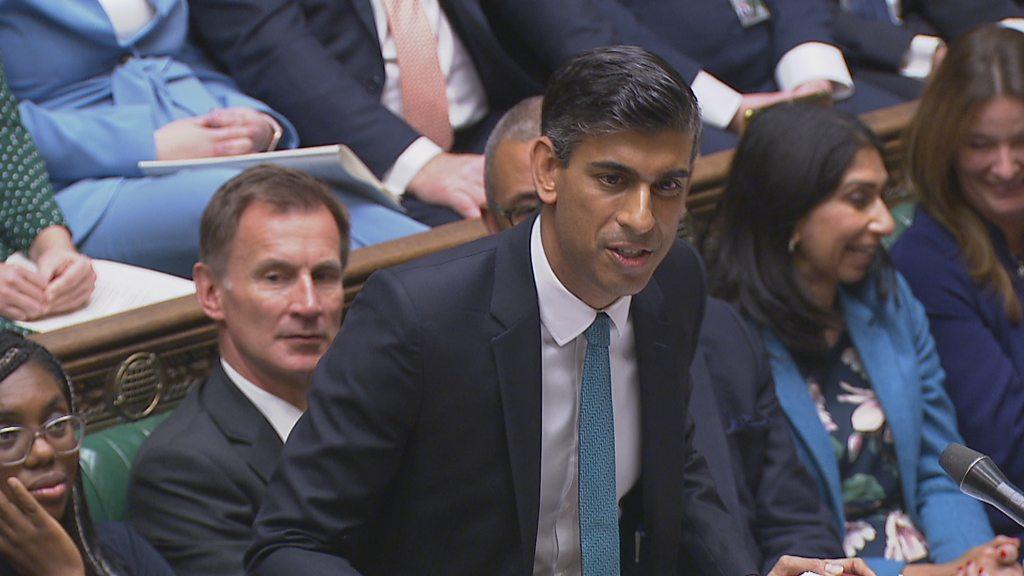Three key Scottish questions for Rishi Sunak
- Published
New PM Rishi Sunak says he is looking forward to working with the Scottish government on the UK's "shared challenges".
Rishi Sunak has signalled that Scotland is on his mind, with a phone call to Nicola Sturgeon on his first day in office.
And in his first appearance in the Commons as prime minister, Mr Sunak reiterated that he wanted to work closely with the Scottish government.
But while he may be seeking a closer relationship with the first minister than his predecessor Liz Truss - who never got as far as picking up the phone - there are still deep political differences between their governments.
Here are three key Scottish questions for the new PM which could define how his new administration is seen north of the border.
1. Can he 'level up' Scotland?
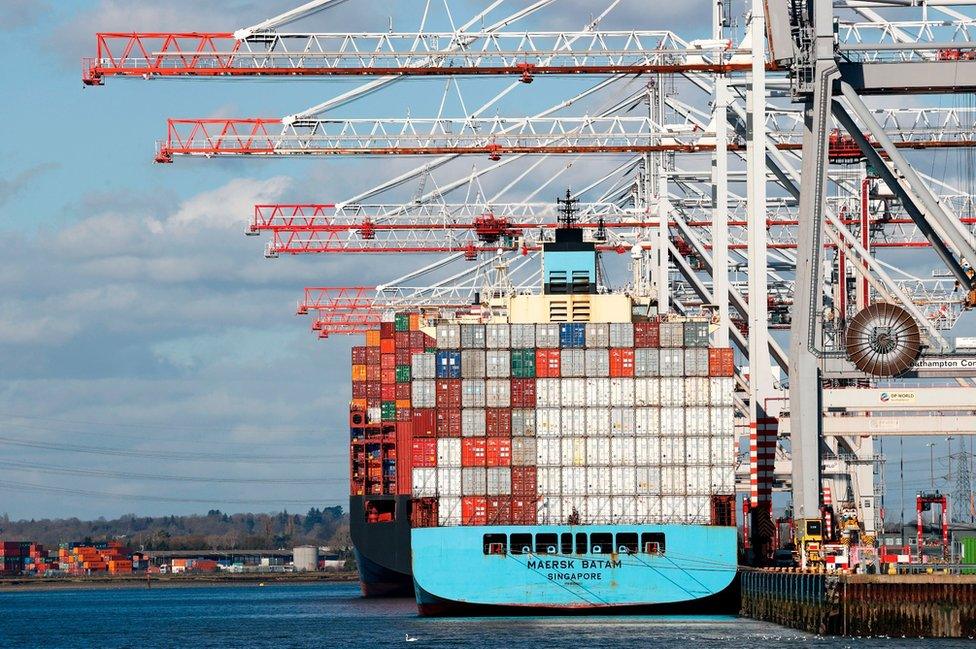
The two governments have worked together on freeports
As chancellor, Mr Sunak helped establish a strategy of making direct investments in local projects across the UK through "levelling up funds".
Levelling up was a Boris Johnson-era buzzword, but Mr Sunak has already given a "cast-iron commitment" to continue it - and Michael Gove has been put back in charge of the department.
Mr Sunak's talk of leading "the most active UK-wide government in decades" also suggests he is keen to expand the boots and cash on the ground approach in a bid to emphasise to Scots that they have two governments working on their behalf.
For all that this is controversial with Scottish ministers, who suspect Holyrood is being cut out of the loop in a "Westminster power grab", it is hard for even SNP-run councils to refuse extra funds.
And there are also cross-border projects which involve more cooperation - like the investment zones announced by Ms Truss, which would offer incentives to firms to help business flourish in certain areas.
Scottish Finance Secretary John Swinney told MSPs that ministers had "engaged in discussion constructively" about setting up some of them north of the border, although he said there were "very sensitive judgements" to be made.
There is precedent for the governments working together on schemes like this, like freeports - which Scottish ministers got on board with after gently rebadging them as having green credentials. A similar compromise agreement could be struck here.
Less popular will be Ms Truss's plans for a new round of North Sea oil and gas licencing.
While Nicola Sturgeon hopes to use the industry to bankroll an investment fund post-independence, she is also keen to move on to green energy and a "net zero" economy as quickly as possible.
This is one area where the UK government can press ahead regardless - unlike the promised reforms to the planning system Mr Sunak is also mulling, which will not apply in Scotland.
The devolution of planning powers also means that decisions about fracking and the building of new nuclear power stations will be effectively vetoed by Scottish ministers.
2. Can he avoid austerity in Scotland?
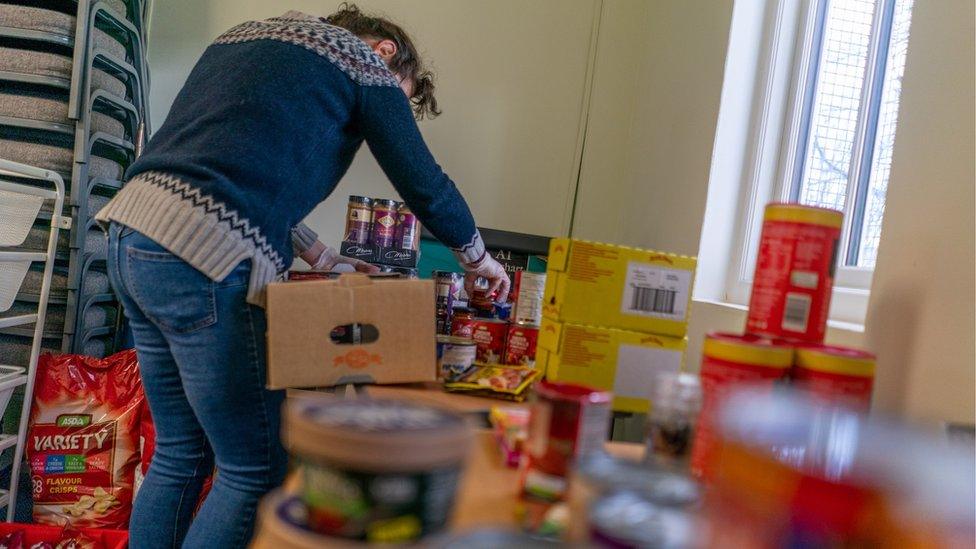
There was a gloomy air to the new prime minister's first speech on the steps of Downing Street, warning of the "profound economic challenge" and "difficult decisions" ahead.
The return of Jeremy Hunt as chancellor suggests the wave of budget cuts and potential tax rises he was warning of will come to fruition, although we will now need to wait until mid-November for the detail.
This means it also remains to be seen how it will affect Holyrood's finances.
Mr Swinney has delayed an update to MSPs while he waits for clarity and fiscal forecasts - for all that he somewhat bullishly insisted, external he hadn't bothered to update his calculations based on the Truss "mini budget" because he was so confident it would collapse.
The deputy first minister has already made some cuts, warning that inflation and the rocketing cost of public sector pay deals have effectively knocked £1.7bn off the current year's budget.
Mr Sunak aspires to pare back taxes in the longer term, but more as a reward for short-term prudence and getting inflation under control than as an ideological touchstone. Indeed, tax rises may be on the table in the immediacy.
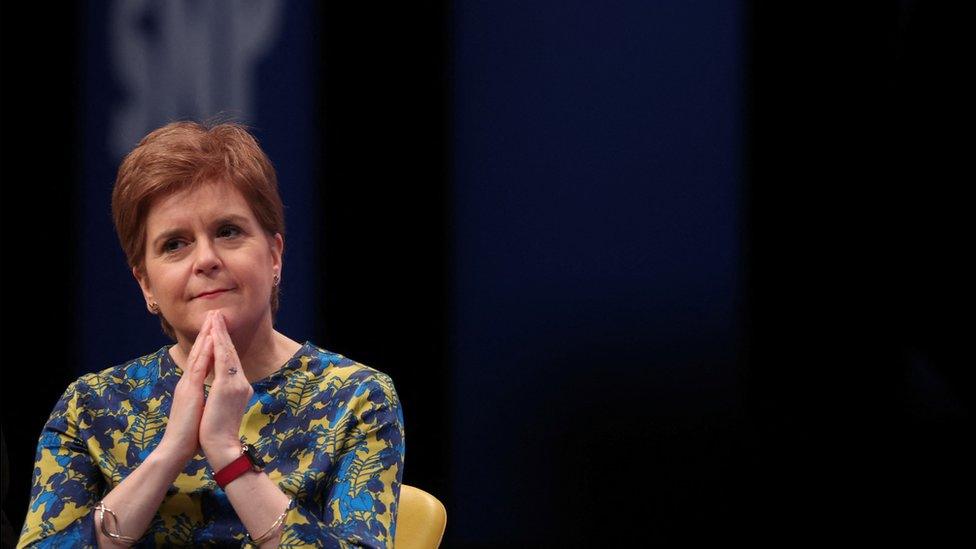
Nicola Sturgeon has sounded the alarm about austerity
Income tax is devolved to Holyrood, but changes to rates in England and Wales have a direct knock-on effect on the block grant.
So could big cuts to departmental budgets, which is why Nicola Sturgeon is already sounding the alarm about a return to austerity measures.
Questioned about this by the SNP's Westminster leader Ian Blackford, Mr Sunak said his record as chancellor during the Covid pandemic had demonstrated that he would always look to "protect the most vulnerable".
Tighter budgets mean difficult choices all round. If Scottish ministers want to try to offset cuts in one area, they either need to take the money from another portfolio or look to hike taxes in their own budget, due to be published in December.
Uprating benefits in line with inflation would also have an impact in Scotland, both in schemes which are still run from Westminster - like Universal Credit - and in the cash sent to Holyrood for the running of the devolved social security system.
Scottish ministers are pressing UK counterparts to bring in extra windfall taxes to fund support schemes for households and inflation-matching rises in benefits and pensions - and also want to see Holyrood's budget boosted next year.
3. Will he change his mind on indyref2?
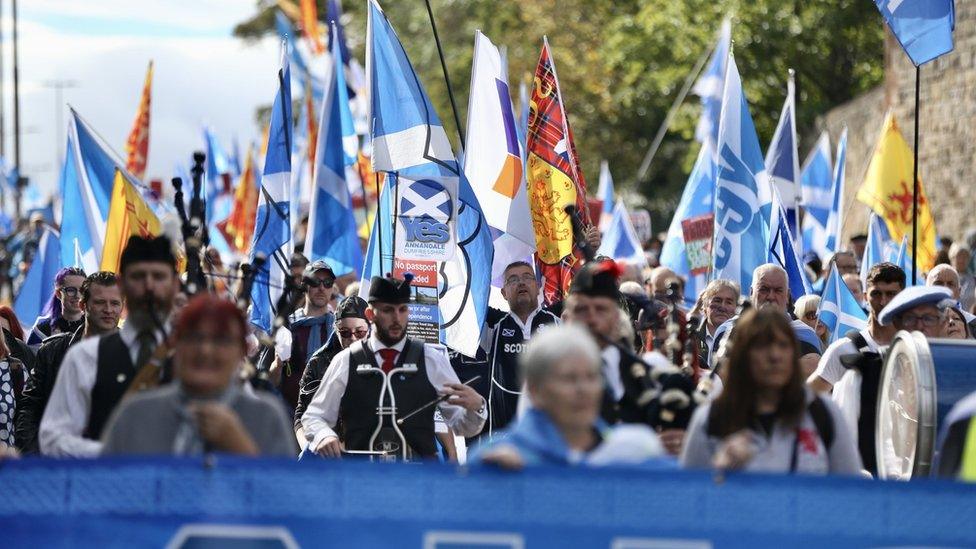
Perhaps the most obvious clash between the Scottish and UK governments is over Nicola Sturgeon's plan for an independence referendum on 19 October 2023.
Mr Sunak has described having a fresh vote during a cost of living crisis as "quite frankly barmy", and said he could not imagine the circumstances where he would back one.
This deadlock isn't exactly new, as he is now the fourth prime minister to employ the "now is not the time" line in five years.
He has arrived in office to an incredible stack of issues weighing down his in-tray and is unlikely to want to add to them, so the question may be whether Ms Sturgeon can do anything to force Mr Sunak's hand.
If the Supreme Court were to rule that MSPs can set up a referendum themselves, that could prove a significant lever. But a deal would still be needed, given the Scottish government argued in court for a "consultative" ballot which would only pave the way for negotiations and legislation at Westminster.
Majoring on the constitution saw the Tories move into second place at Holyrood in the aftermath of the 2014 referendum, so Mr Sunak may feel the party's campaigning will gain more from maintaining a firm refusal than from agreeing to engage.
Ms Sturgeon noted that she had discussed "mutual respect, including for mandates" with the prime minister during their introductory phone call.
She believes she has a mandate for a referendum; Mr Sunak believes he has a mandate to run the UK government for another two years without a general election.
Respect there may be, but agreement on either point is unlikely to be forthcoming.
- Published26 October 2022
